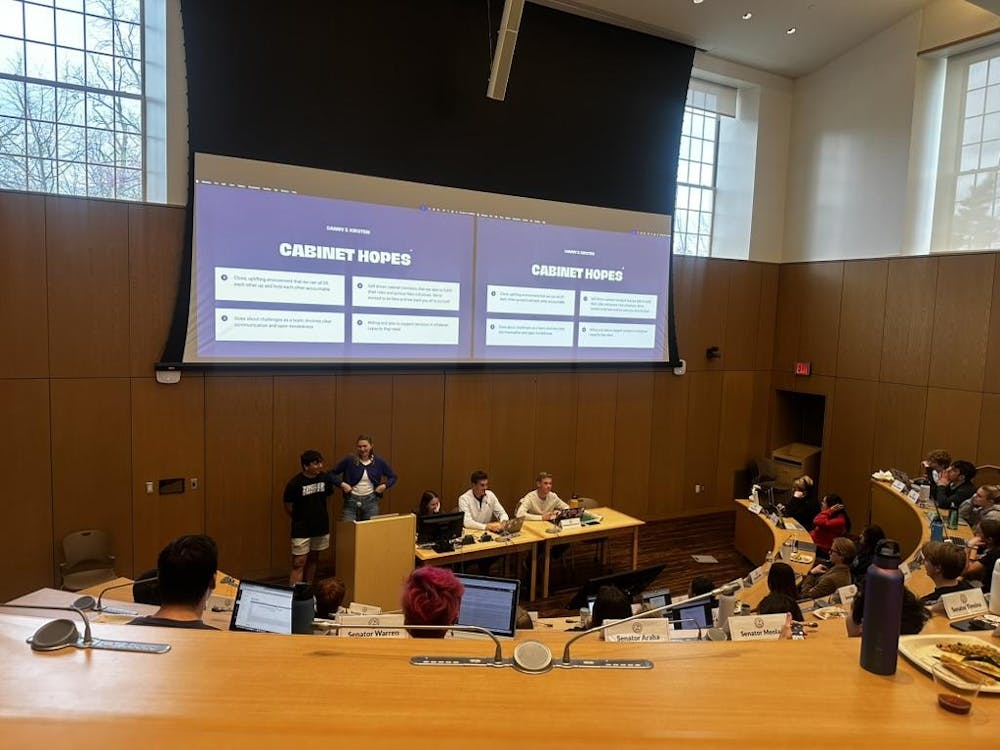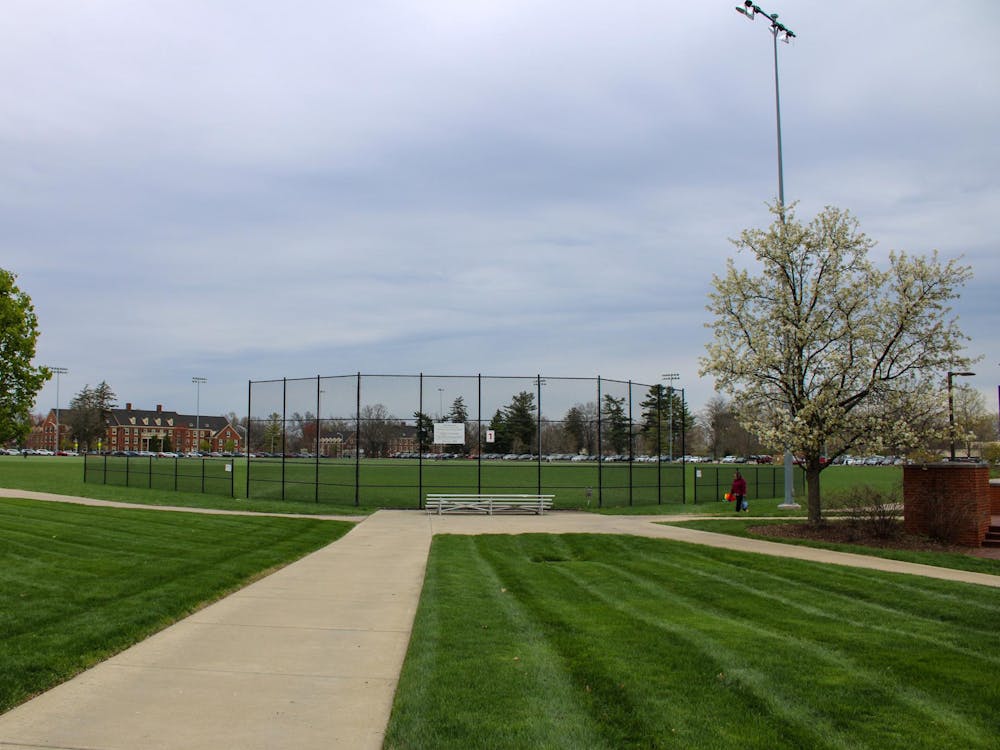It's that time of the year again! If you're in a frat, sorority or student org -- or if you have looked up from your phone while walking past the Seal -- you might know that it's student body election season. There's also a good chance you have no clue that there's an election going on: 40 percent of our survey respondents didn't.
The "our" is 1809. We're a new publication that loves to get wonky with data regarding public opinion and other interesting numbers. Our name is a play off of Nate Silver's election analysis and data reporting site "538." This is our first article. How exciting!
With the goal of predicting the outcome of Tuesday's Student Body President election with a certain degree of accuracy, we conducted a (horribly unscientific, but nonetheless charming) poll of a relatively random sample of students. After polling students around campus and by electronic mail throughout the last week, here is what we can say with confidence: Who knows? Certainly not us. But the results are interesting. In short: There's probably going to be a runoff, the clear frontrunner is a candidate named Undecided and students want a movie theater in Oxford as much as they dislike the meal plan (which is a lot).
Before getting into the numbers, a word on how we got them. Around 3,500 students voted last year in an election with five candidates, which is 700 votes a candidate (it was really close in the first round). Since we only have three candidates this year, we can expect turnout to be around 2,100 votes. Our sample size was 630 students, which brings us to a 3 percent margin of error with 95 percent confidence. The biggest source of salt to be poured on this survey comes from our method of collecting data: We stood around Armstrong, Farmer, the Seal, Maplestreet and Slantwalk and asked random students to take our survey. Sean Perme also put out a digital survey in an email to all off-campus students. This method probably oversampled off-campus students, as the email was reached by thousands of them and we could only get a hold of two hundred on-campus students. However, traditionally, the largest share of voters are juniors and seniors who do not live on campus. It should be mentioned that ASG's Elections Committee helped a great deal by giving us money to offer a gift card raffle as a reward for taking the survey, without which we probably would have gotten far fewer responses. Thanks!
Undecided has earned a strong showing of 46 percent. Behind Undecided comes our first human candidate, Alex Boster, at 18.4 percent. Next is James Gale with 17.9 percent, and then Meaghan Murtagh at 17 percent. Folks, this is a remarkably dead tie. The sheer number of undecided voters, coupled with some other x factors, make this so very hard to analyze. It's highly unlikely that any one of these candidates will get more than 50 percent, which means that we are all so lucky enough to endure another week of campaigning in the runoff election! Turnout and turnout alone will decide which two will advance. From here on out in the article, just so you know, I'm just guessing.
These elections are fickle. The fact that voting happens online makes turnout sporadic and hard to predict. While each candidate has been trying their hardest to get their name out there, election day typically boils down to who is backing whom. Greek organizations will tend to vote chapter by chapter, GroupMes will get flooded and student orgs will roll out their endorsement emails. Because she held her ground in our survey, she is in a popular sorority and she was endorsed by two big email-chain orgs (the College Democrats and College Republicans), we're going to say that Alex Boster will probably clear the first round.
It is difficult to say whether Murtagh or Gale will be the challenger. Again, there are tons of undecided votes to eat up, so whichever campaign makes more appeals regarding popular issues could soar far above their current standing. There's also the chance that undecided voters do not vote, which will be a barrier for everyone running. Gale performed the best with off-campus students but the worst with on-campus students, and the fact that his ticket is endorsed by RHA could or could not be a big deal, depending on how they want to mobilize that endorsement. Murtagh does best with voters who just learned about the election, so her campaign is the strongest at face-value. She also has been zipping around campus, visiting a total of 42 organizations. These candidates and their running mates are also each pretty well known in greek life and around campus, and they've been campaigning non-stop. Tuesday's results will likely shake out very close between these two, and only just trailing Boster. All three campaigns have a path to victory by maximizing the impact of their endorsements and campaigning on issues students care about all the way up to the last hour.
That leads us to our final survey question. Out of a list of eleven, respondents chose three issues they cared about the most. Roughly tied for most complained about by on-campus students -- around 50 percent of all respondents chose these -- is the lack of a movie theater and the meal plan. Real shockers there. For off-campus students, a whopping 62 percent want different parking policies on Miami's campus. More students know what changes they want to see than they know who they are voting for. If you're a candidate for student body president and you're reading this and you want to win, you should probably talk more about your plans for the meal plan, go into detail about parking and then perform a host of rituals you think will bring you good luck because it is anyone's game after that point.
Thanks a whole lot to Craig Beurelein and Molly O'Donnell for doing the legwork on this one and conducting most of the survey. Cole Hankins and the Elections Committee deserve a shout-out for signing off on this project, as does Sean Perme for spreading the survey far and wide in the digital world.
If you want to get involved in projects like this in the future, send me an email about joining 1809!




